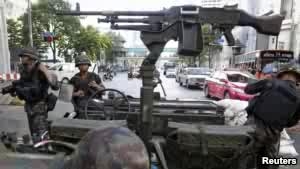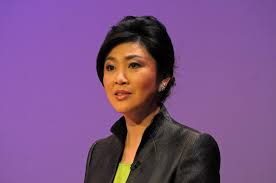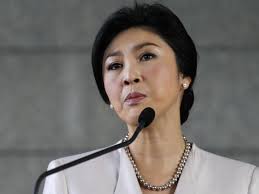Thai Army Declares Martial Law, But Says It’s Not a Coup
Thailand’s Army Chief has declared martial law following months of political turmoil, but insists he is not seizing power through a military coup. In the capital, Bangkok, troops moved in to take up positions at the main political rally sites, television stations, and key transport routes to the city.
Thai government television Tuesday broadcast patriotic songs hours after the Thai Army chief General Prayuth Chan-ocha declared martial law across the country around 3 am local time.
In a statement read on Thai television, Prayuth said martial law was necessary to address a deteriorating security situation and he feared the use of heavy weapons against civilians. He said the situation raised fears of riots and severe unrest affecting the national security. He said the Royal Thai Army intends to bring back peace and order to the country as soon as possible. He asked the public not to panic and to carry out their work as normal.
The army says the country’s caretaker government remains in place. Civilian government representatives are scheduled to meet with military leaders in Bangkok later Tuesday to discuss the situation.
Television news stations remain on the air in Thailand, although the military later aired a statement prohibiting anyone from distributing news or images that impact the peace and order situation in the country.
The declaration of martial law removes the agency comprised of police and civilian authorities that has overseen security in recent months. In Bangkok Tuesday morning, troops took up higher profile positions throughout the capital, including at the main pro- and anti-government demonstrator rally sites. But otherwise, businesses, schools and government offices remain open as normal.
Thai Army chief Prayuth has warned in recent days the army was prepared to adopt tougher measures after an attack on an anti-government protest site left three people dead and over 20 injured. Six months of political protests has left almost 30 people dead – mostly anti-government protesters.
The military’s move comes amid an increasing stalemate in the political conflict and protests as anti-government groups called for political reforms before new elections.
The former Prime Minister, Yingluck Shinawatra, and nine cabinet members were forced to step down by the constitutional court over charges of abuse of power.
Yingluck was replaced by commerce minister Niwatthamrong Boongsongpaisan, who Monday refused to step aside under a plan set down by the Senate. The governing Pheu Thai Party says it remains resolved to press on for fresh elections before carrying out political reforms demanded by anti-government demonstrators.
Official economic data, released Monday, pointed to increasing damage to the economy after months of political conflict.
(VOA)



